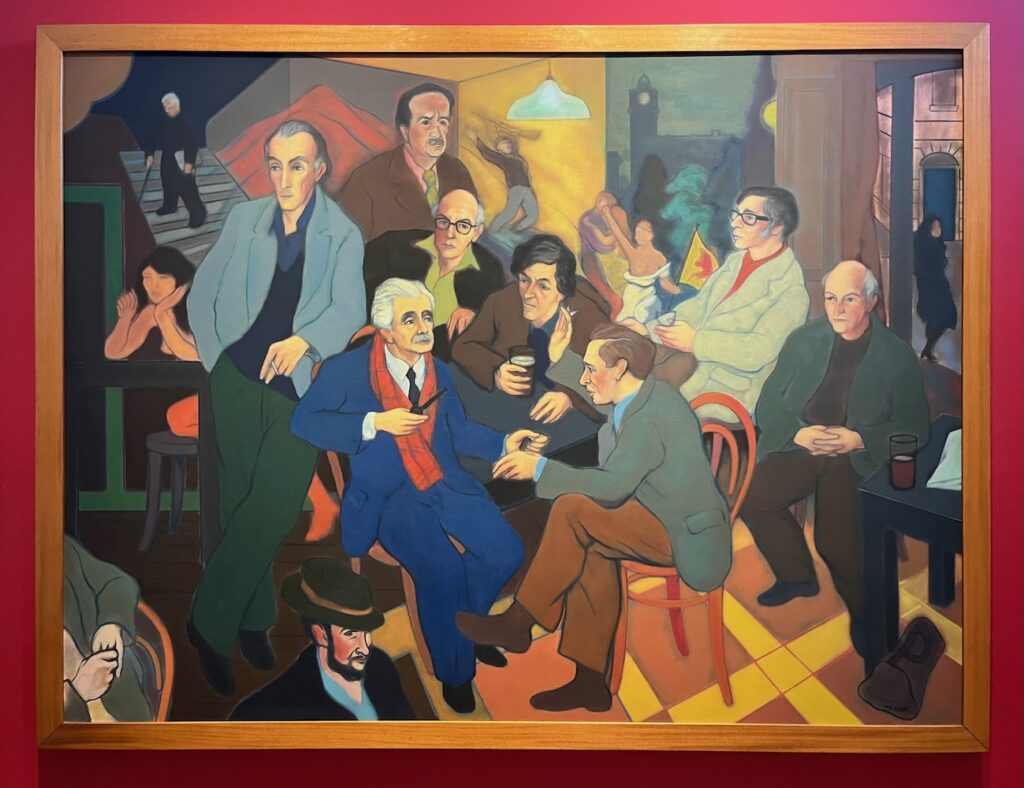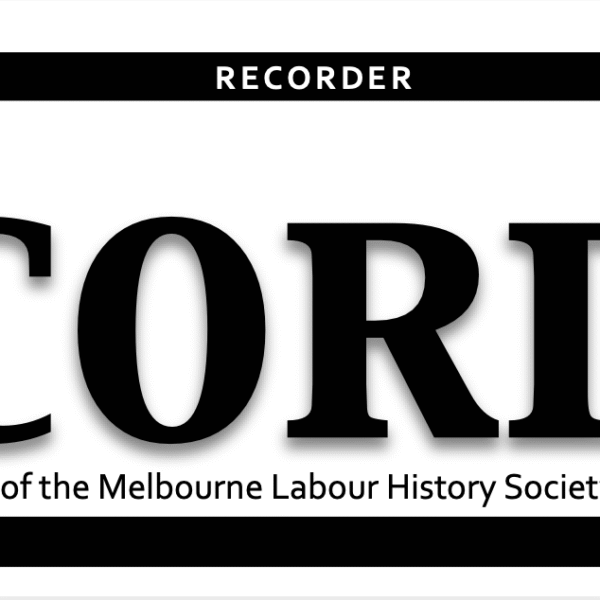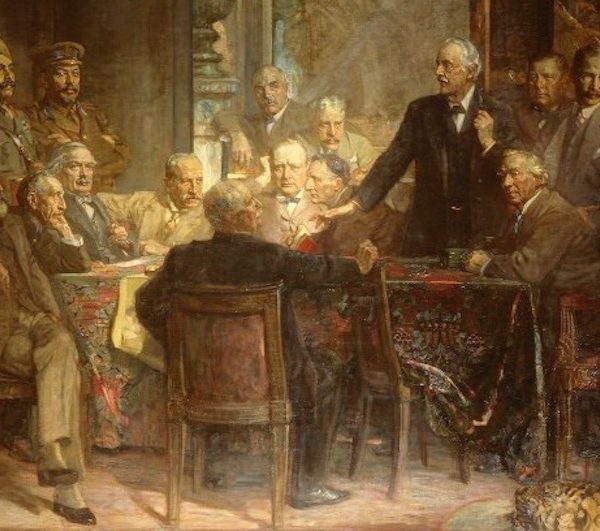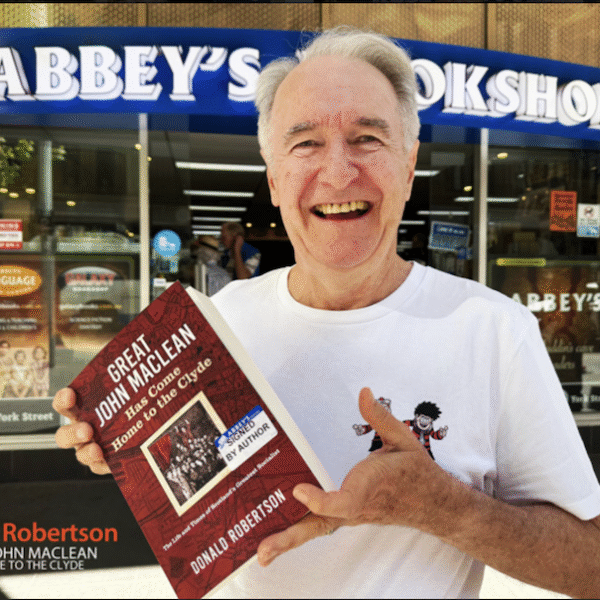Poets’ Pub
In researching my recent biography of John Maclean, it became clear to me that the poets of Scotland played a major role in rescuing Scotland’s greatest socialist from the mists of obscurity. Thus, when I visited the Scottish National Portrait Gallery in Edinburgh in September, I was struck by this 1980 painting by Alexander Moffat.
Titled ‘Poet’s Pub’, it is an imaginary vision of the major Scottish poets and writers of the second half of the twentieth century. While my book concentrates on the facts of Maclean’s life and times, it’s impossible to ignore the myth and legend attached to the man, and the poets and songwriters who created it.
In Moffat’s group portrait the writers are gathered around the central figure of Hugh MacDiarmid. MacDiarmid was the first major poet to eulogise Maclean in the years after his early death. His 1929 poem ‘Krassivy, Krassivy’ opens with the lines:
Scotland has few men whose names
Matter – or should matter – to intelligent people
But of these Maclean, next to Burns, was the greatest.
To open parts of my book, I used quotes from two poets depicted in the painting. At the top, directly above MacDiarmid, is the great Gaelic poet Sorley MacLean. At the opening of part one, I included an extract from MacLean’s epic poem ‘An Cuillithionn 1939’ (‘The Cuillin 1939’):
I heard that a breaking was seen
and a startling on the horizon,
that there was seen a fresh, red rose
over an oppressed, maimed world.
I heard about the River Clyde
Being of the hue of scarlet;
I heard about Maclean
Making an undying knot
Of every brain and heart
With spirit over agony.
The whole work is riddled with references to John Maclean.
And at the start of part four, I included the following extract from Edwin Morgan’s 1973 poem, ‘On John Maclean’.
I for one will not follow
a policy dictated by Lenin until he knows
the situation more clearly.’
Which Lenin hadn’t time to,
and parties never did – the rock of nations
like the rock of ages, saw-toothed, half-submerged,
a cranky spluttering lighthouse somewhere, as often
out as lit, a wreck of ships all round,
there’s the old barnacled ‘Working-class Solidarity’,
and ‘International Brotherhood’ ripped open and awash,
while you can see the sleekit ‘Great-Power Chauvinism’
steaming cannily past on the horizon
as if she had never heard of cuius regio.
Maclean wanted neither the maimed ships
nor the paradox of not wanting them
while he painfully trimmed the lighthouse lamp
to let them know that Scotland was not Britain
and writs of captains in the Thames
would never run in grey Clyde waters.
The cast of ‘Poets’ Pub’ is, from left to right: Norman MacCaig, Hugh MacDiarmid, Sorley MacLean (top), Iain Crichton Smith (middle), George Mackay Brown, Sydney Goodsir Smith, Edwin Morgan and Robert Garioch. In the foreground is Alan Bold and, on the steps behind, the art critic, John Tonge. The setting is an amalgam of the interiors of their favourite drinking haunts in Edinburgh – Milne’s Bar, the Abbotsford and the Café Royal.
One notable omission is Hamish Henderson, also a prominent Scottish poet and writer of the period, and composer of ‘The John Maclean March’ and ‘The Freedom-Come-All-Ye’, among other works. Maybe Moffat just couldn’t fit everyone in. Perhaps Henderson drank at the wrong Edinburgh pub (Sandy Bells), rather than the three mentioned above. Could it even have been the taint of folk-song, of which Henderson was an avid champion? After all, the form was memorably denounced by MacDiarmid in the 1960s as ‘the ignorant drivellings of swinish shepherds’. Whatever the reason, he’s not there. But it’s still a fine painting.





